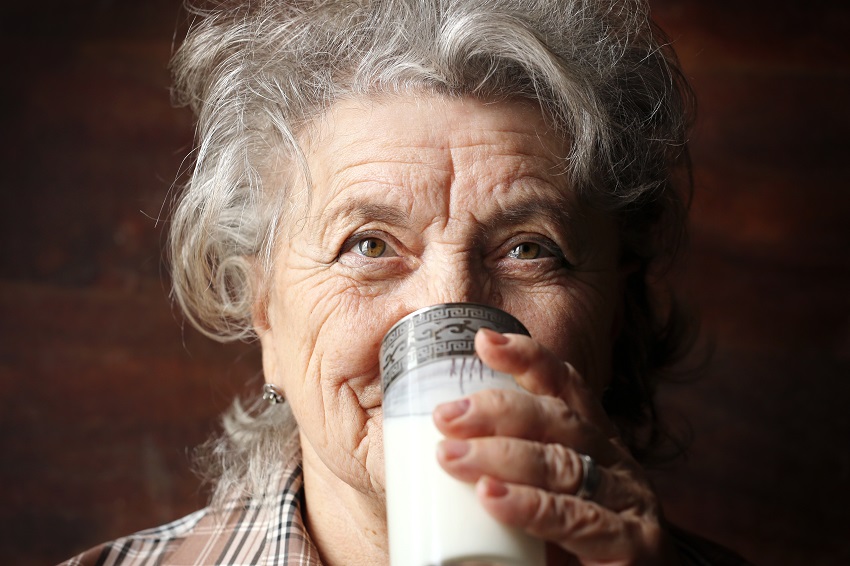
Benefits of Drinking Milk for Seniors Living Maples
Milk is jam-packed with health benefits that older adults can benefit from. It is an excellent source of vitamin D, "the sun vitamin," that aids in increasing immunity and calcium absorption. This impacts bone density and strength. It strengthens the bones, preventing osteoporosis from eating away at you.

Top 10 Health Benefits of Milk Healthy Wealthy Tips. Milk Benefits
Milk and dairy intake and cognitive function RCTs. Only one crossover RCT [] met the inclusion criteria (Table 1).Participants (n = 38) were randomized to either a high-dairy diet (four servings of reduced-fat dairy foods per day) or the low-dairy diet (one serving of reduced-fat dairy foods per day) for 6 months, followed by an alternate diet switch for another 6 months, without a washout period.

World Milk Day 5 Incredible Benefits Of Milk Infographic
3. Milk Benefits Bone Health. Drinking milk has long been associated with healthy bones. This is due to its powerful combination of nutrients, including calcium, phosphorus, potassium, protein and.

Milk for Senior Citizen Benefits Beyond Stronger Bones
By incorporating milk into their diet, seniors can not only enjoy the rich taste and variety of milk products but also benefit from the synergistic effect of vitamin D and calcium. The combination of these two nutrients promotes optimal bone health, reducing the risk of fractures and supporting overall well-being.
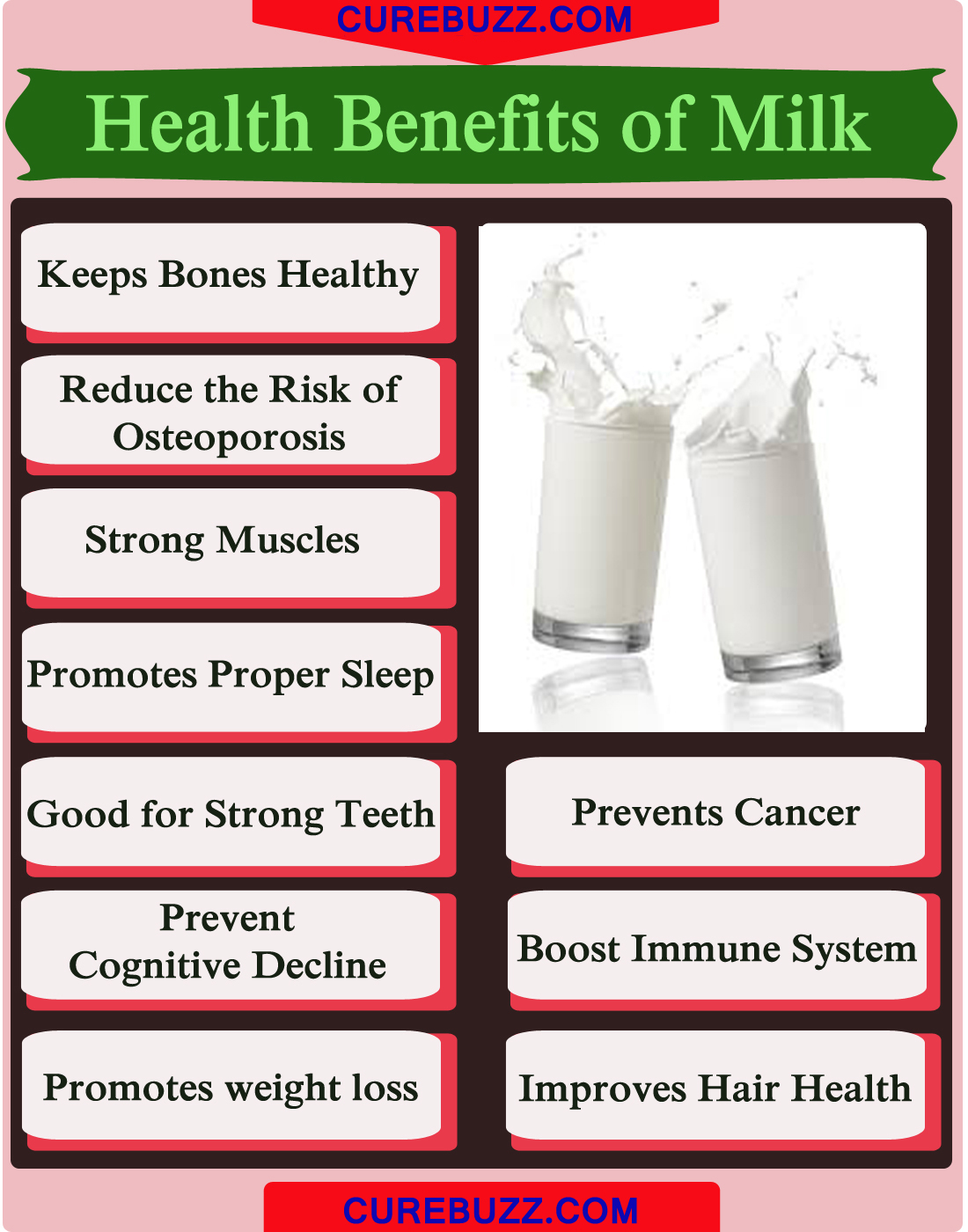
10 Health Benefits of Milk CUREBUZZ
The protein content in a glass of milk may vary depending on the type of milk (whole, skim, low-fat, etc.) and the serving size. However, on average, a typical 8-ounce (240 ml) glass of cow's milk contains about 8 grams of protein. The protein in milk is of high q uality a nd provide s all the essential amino acids necessary for the growth and repair of body tissues.

10 Health Benefits of Drinking Milk Regularly Life Mag
Whole or lowfat cow's milk provides the most calcium and vitamin D naturally. Those with lactose intolerance may need lactose-free milk or plant milks with added calcium. For heart health: Milk with healthy fats but lower in saturated fat is ideal. Whole milk may be suitable for very thin seniors who need more calories.

10 Benefits of Milk for Your Body Pravarsha Blog
Assessing the Benefits of A2 Cow Milk for the Elderly. A2 cow milk, known for containing only the A2 beta-casein protein and lacking the A1 beta-casein protein, is believed to be more easily digestible for some individuals, including seniors. Its potential to alleviate digestive discomfort makes it a favorable option for the elderly.
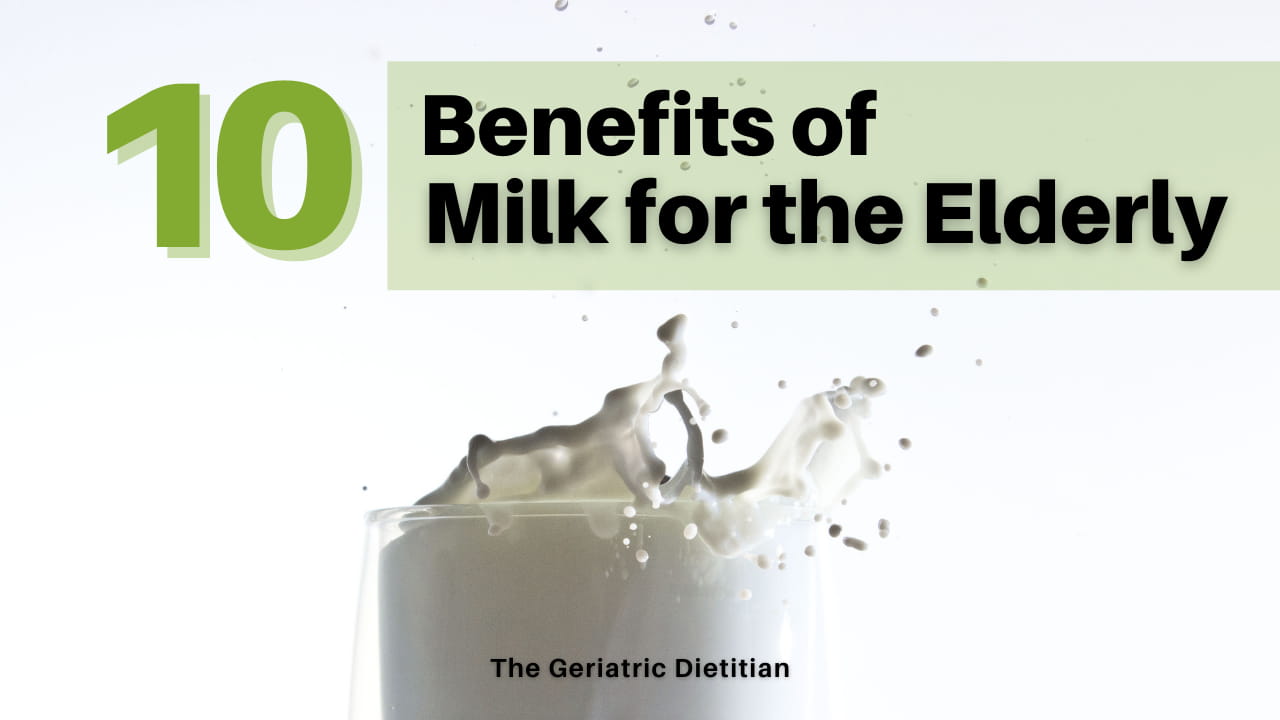
10 Benefits of Milk for the Elderly The Geriatric Dietitian
The changes in muscle with aging. Muscle plays an essential role in the health of the elderly. Muscle mass corresponds to approximately 40% of body mass.15 The quality and strength of skeletal muscle usually peaks at the ages of 20 to 35 years.16 After that, there will be 3% to 8% muscle mass loss every 10 years and the loss usually accelerates after age of 60 years.8,17-20 With aging, the.
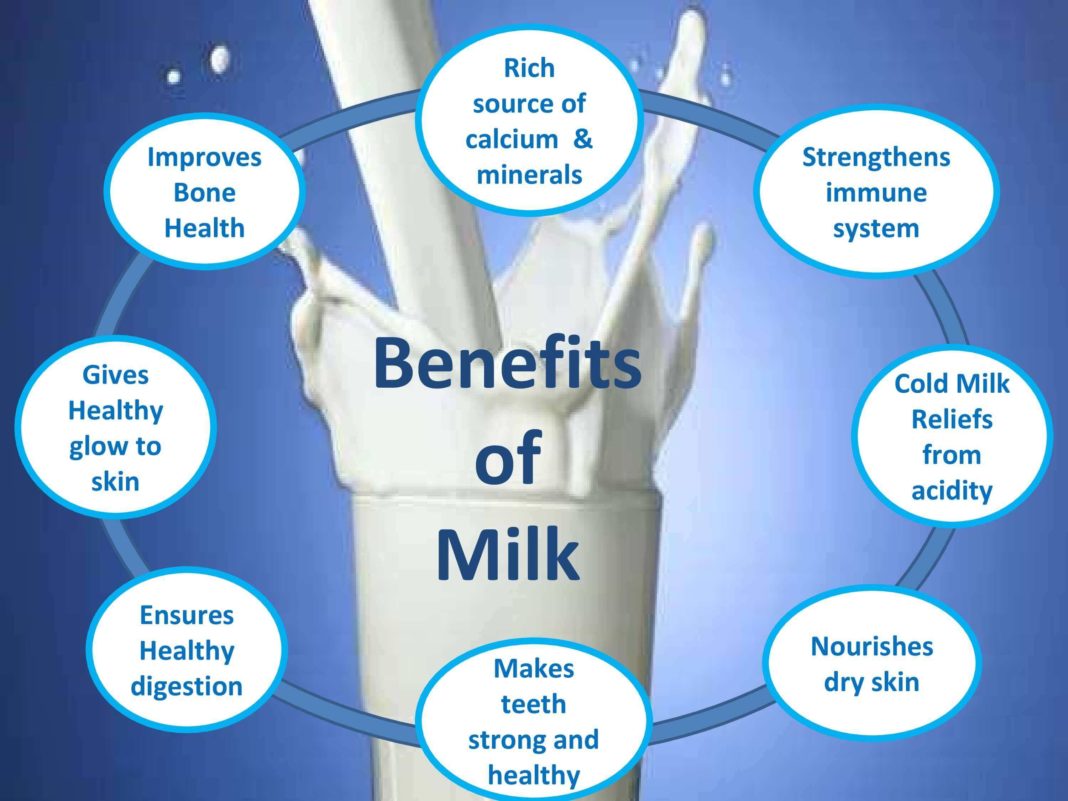
11 Marvelous Benefits of Milk, You must to know My Health Only
4. Milk for Senior Citizen Benefits: Vitamin D. Vitamin D is necessary for strong bones, and it plays a crucial role in the absorption of calcium. Though the body can produce vitamin D on its own, you may also supplement your diet with rich sources of vitamin D, such as milk. Vitamin-D fortified milk has been found to be a safe and effective.

10 Benefits of Milk That You Never Knew YouTube
The health benefits for children are well-known, and there is evidence to suggest that older adults benefit immensely too. Cow's milk is generally the most beneficial oral food for older adults because it contains high levels of CLA (conjugated linoleic acid). Additionally, riboflavin and vitamin B12 also play an important role in promoting.
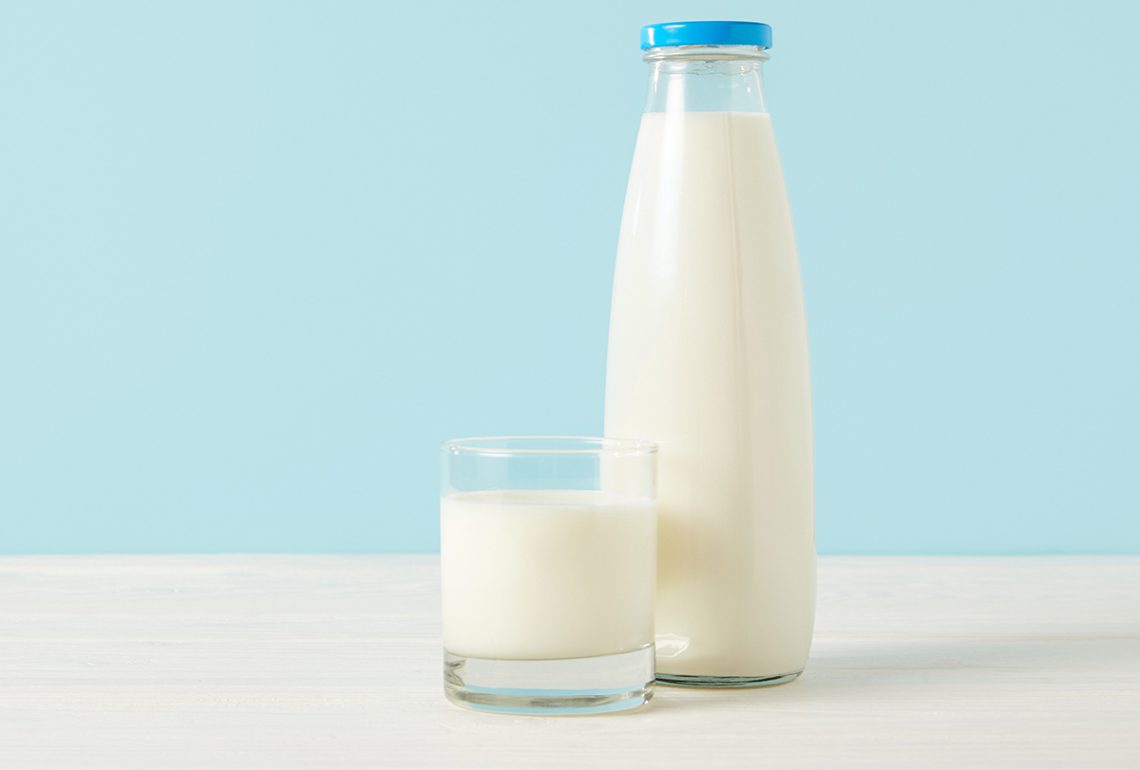
What Are the 10 Health Benefits of Drinking Milk?
High in protein. Milk is a good source of high-quality protein, with about 8 grams of protein per cup. "It can be especially beneficial if you struggle to get enough protein," Zumpano says.
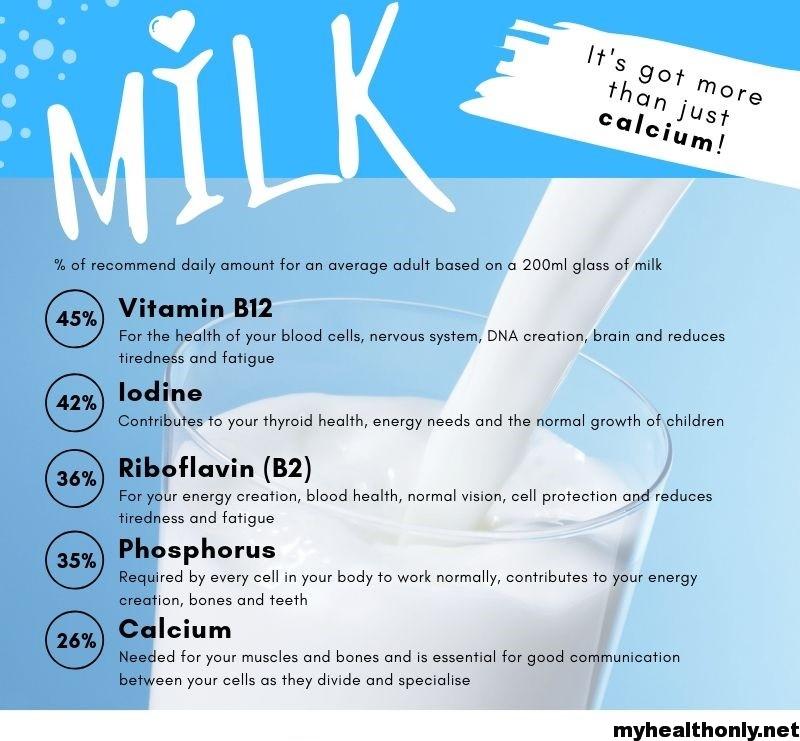
11 Marvelous Benefits of Milk, You must to know My Health Only
Here are some of the nutrients and health benefits that we get from drinking just one glass of cow's milk: Calcium - Keeps bones and teeth healthy and strong. Has a role in muscle function, nerve transmission, and hormone secretion. Riboflavin - Antioxidant properties to prevent cell damage. Phosphorous - Needed for growth, maintenance.

10 Benefits of Milk That You Never Knew Even When You Drink It Every
1. Calories. The first benefit of consuming milk as an older adult is that milk provides a great number of calories in one cup. This can help prevent unintended weight loss and it helps older adults maintain a healthy weight. U nintended or involuntary weight loss is a common struggle that many older adults go through.

Pin on Health Benefits of
Milk provides a good source of vitamin D and calcium, which older adults tend to need more of. These two nutrients help to maintain bone strength, preserve muscle strength, and prevent osteoporosis, all of which are common problems that can arise as we age. For some seniors, milk means more than nutrition. It provides comfort in their golden years.
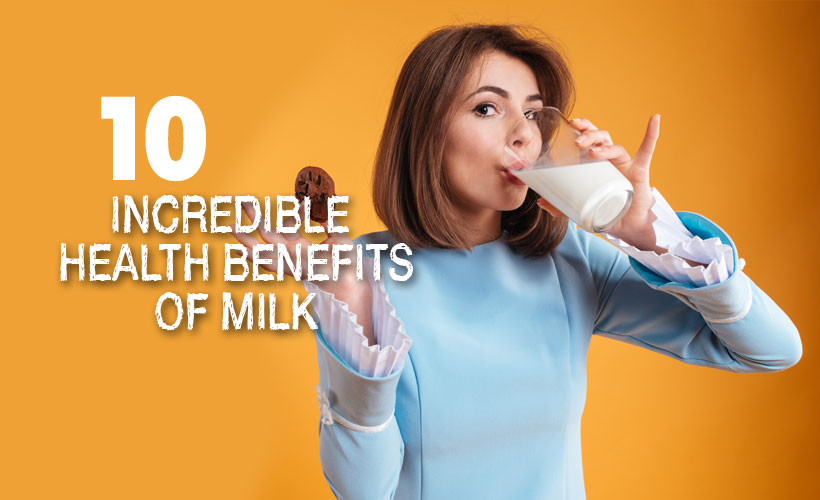
10 Incredible Health Benefits of Milk Yabibo
Nutritional Composition of Milk. Milk and milk products (eg, yogurts and cheeses) are examples of whole foods dense in nutrients that may have potential for improving muscle mass 21 and performance, 24 and therefore increasing consumption could be a preventive strategy for sarcopenia. 25 Liquid milk, an important part of a healthy diet for over six billion people, 26 contains a range of.
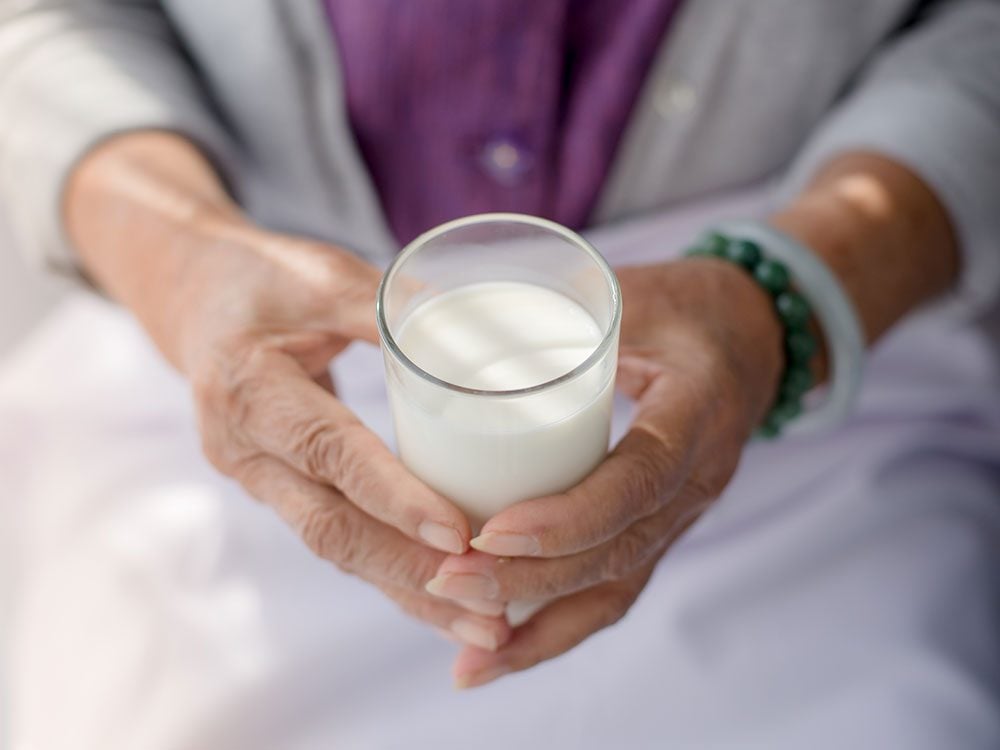
Is Milk Good For You? Our Health Experts Weigh In Reader's Digest
The elderly should not avoid milk and dairy products, because they are a source of high-availability protein, vitamin D, calcium, and phosphorus, which are important for preventing disorders occurring in the elderly, e.g., osteoporosis . It is vital to note that lactose intolerance is often common among older people, and for this group of.